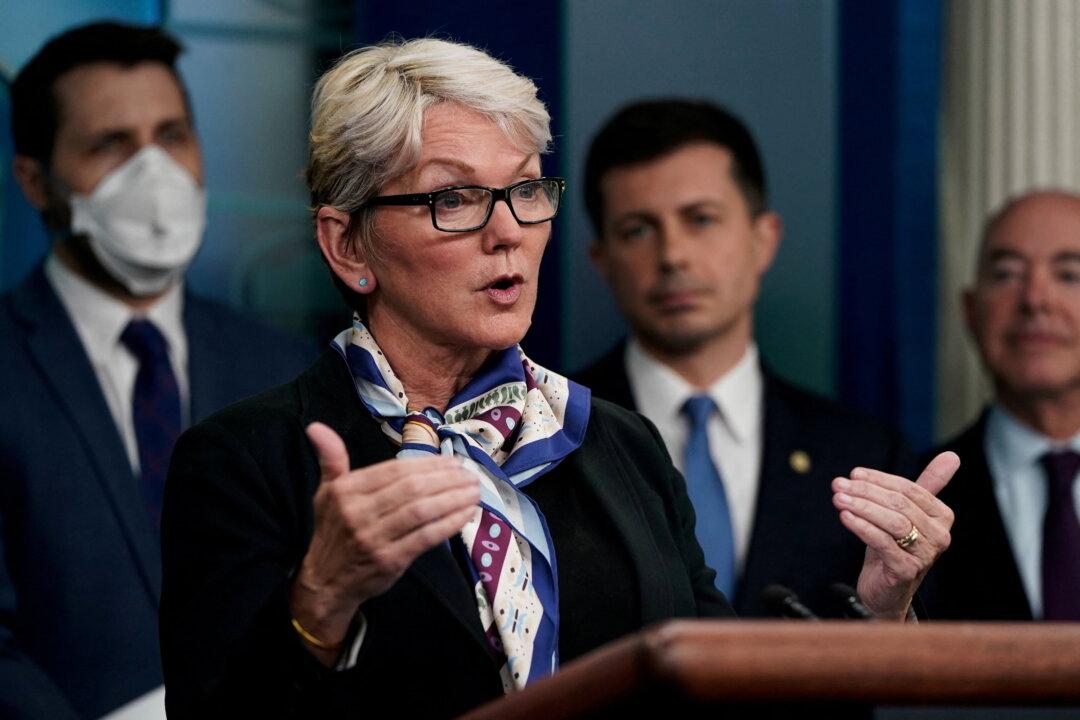U.S. Secretary of Energy Jennifer Granholm sent a letter to the House energy panel warning that the GOP push to add stipulations to the withdrawal of oil from strategic reserves will harm Americans and contribute to an increase in gas prices.
Earlier this month, Rep. Cathy McMorris Rodgers (R-Wash.) introduced the Strategic Production Response Act that will make President Joe Biden’s authority on releasing oil from the Strategic Petroleum Reserve (SPR) conditional on the president opening up more federal lands for oil and gas drilling. House Republicans are set to soon vote on it. Rodgers chairs the House Energy and Commerce Committee.





